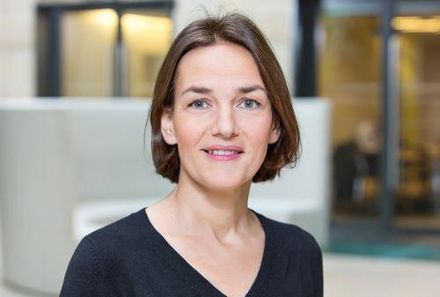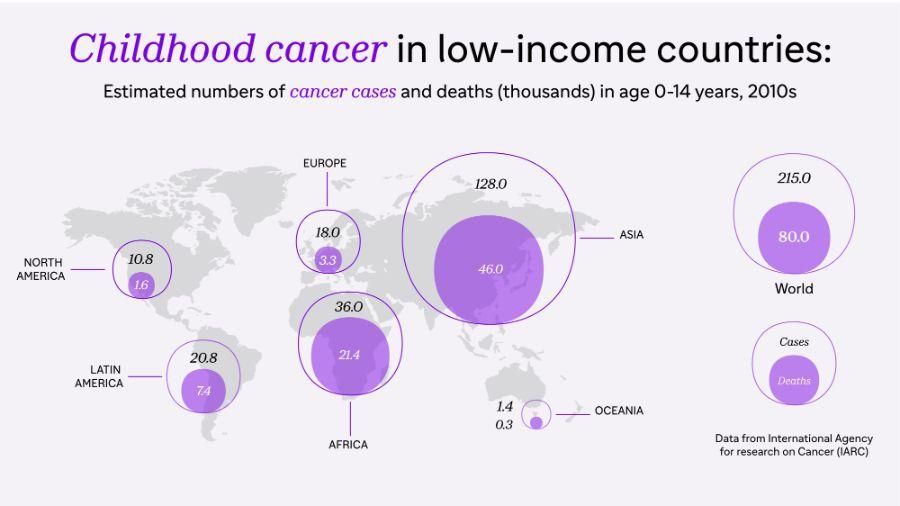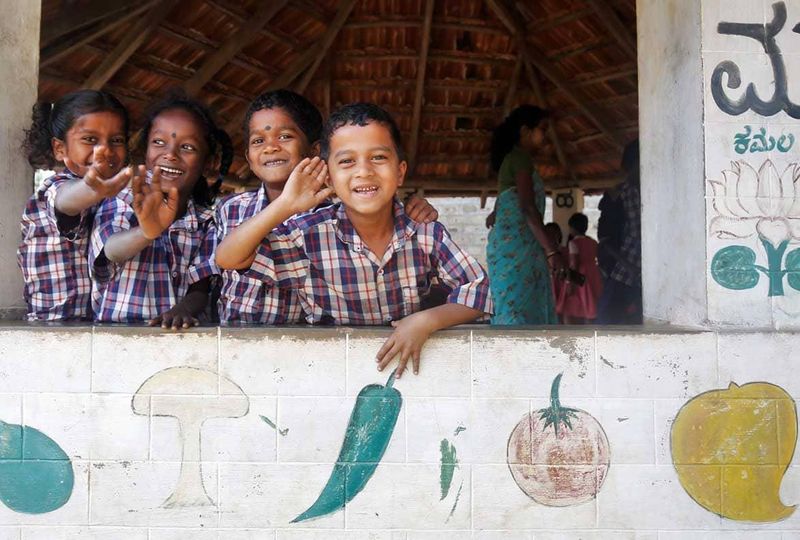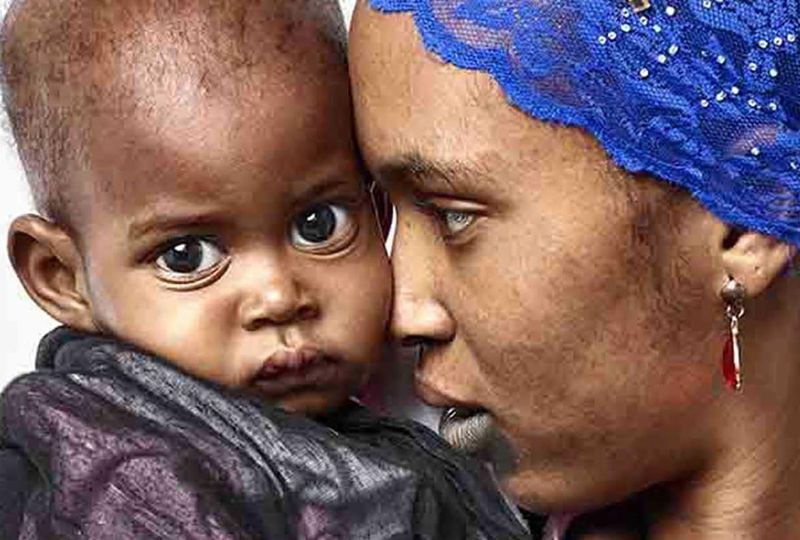My Child Matters: Improving Childhood Cancer Survival in the Developing World

My Child Matters was launched by the Sanofi Espoir Foundation in 2005 to improve the survival rate of children with cancer in low- and middle-incomes countries.
Launched as a multi-partner initiative, the program was implemented with NGOs and governments in countries where the needs of children and families were the most evident. Overall, the program has increased the survival rate of children by a median of 5,1% over 10 years, thus saving the lives of more than 1,300 children a year (Lancet 2018).
My Child Matters is now the cornerstone initiative of Foundation S – The Sanofi Collective. It will be further expanded to support the World Health Organization’s (WHO) objective of achieving at least 60% survival for all children with cancer by 2030.
The program aims to support children with cancer who would otherwise have few options and will continue to work with local organizations to support children and families and increase access to diagnosis and treatment. To date, it has supported more than 120,000 children globally.
We set out to act as a catalyst for improving access to cancer treatments for children in low- and middle-income countries. We now have evidence that, together with our partners, our efforts have had a huge impact on the lives and survival rates for these children. Now, it’s time to amplify our impact to reach the goal from WHO of 60% of survival by 2030.

Isabelle Villadary
Foundation S, Chilhood Cancer Program Senior Director
Cancer is diagnosed annually in about 215,000 under age 15 worldwide, and is a leading cause of death for children in developing and developed nations alike.

Treatments have improved markedly over the past several decades and significantly reduced mortality in developed nations, where the overall survival rate now exceed 80 percent. But the same is not the case for patients in developing nations, who lack the resources and access available in developed countries.
In developed countries, children with cancer get a proper diagnosis and have access to good treatments. In developing countries, even if parents are aware their child has a problem, it can be difficult to find a practitioner with expertise - the average pediatrician has chance of seeing on child with cancer every year or two, and in places like sub-Saharan Africa, there may be only one or two pediatric oncologists in the entire country.
The My Child Matters program was created to begin to address this imbalance. In some cases, the improvements noted in the reported results stem from simply increasing awareness of childhood cancers and their symptoms, so that more patients are getting a correct diagnosis early enough to arrest the progress of the disease. In others, training for health care professionals helped reduce therapy abandonment and increased access to palliative care.
In setting up the program, Sanofi established close links with experts in pediatric oncology around the world to provide advice and mentoring. Specialists from France, Italy, the UK, Germany, Ghana, Hong Kong, Canada and the US not only contribute individual support, they also participate in a panel that rigorously evaluates new projects as well as existing ones on an annual basis.
While the program itself is only one of many factors behind the improvements identified in the study, its function as a catalyst for government and NGO participation has meant that more extensive projects have been possible than with the Sanofi-Espoir Foudation alone.
“We’re only a few people at the Sanofi Espoir Foundation level,” noted Gagnepain-Lacheteau. Without collaboration it would have been impossible for My Child Matters to have expanded to its current size, supporting 55 pediatric cancer projects in 42 countries in nations from Bangladesh and Vietnam to Tanzania, Honduras and Ukraine.
In fact, according to the study of the 10 “index” nations, sustained leadership on a local level was a strong predictor of successful outcomes for patients. My Child Matters has also connected health-care professionals and community members from diverse centers in five continents and provided leadership training and networking opportunities to participants.
The collaborations are different for each project. We don't force the teams to have an identical modal for implementing a project in their country, because each team knows best the needs and realities on the ground.
Explore more

Foundation S – The Sanofi Collective

Discover the faces and the Stories Behind My Child Matters
